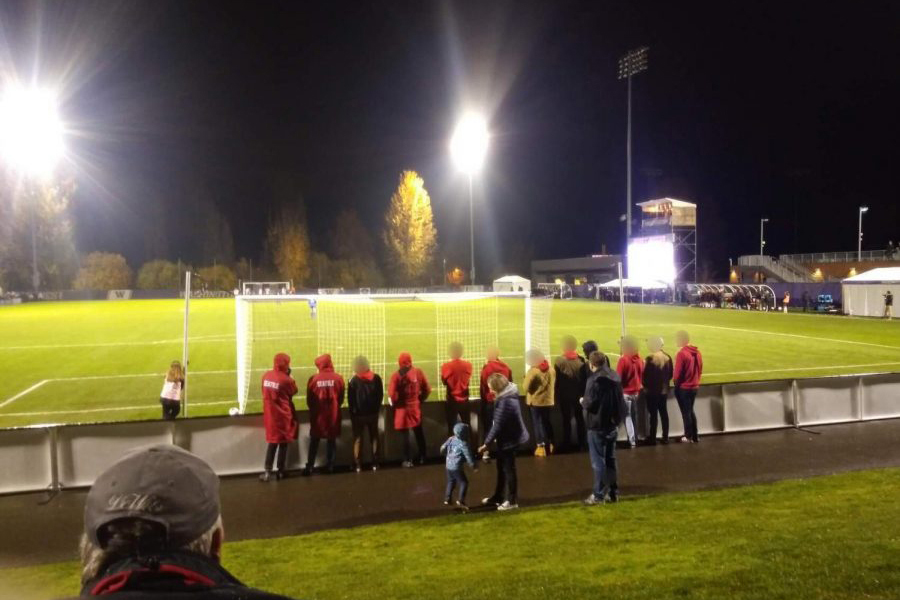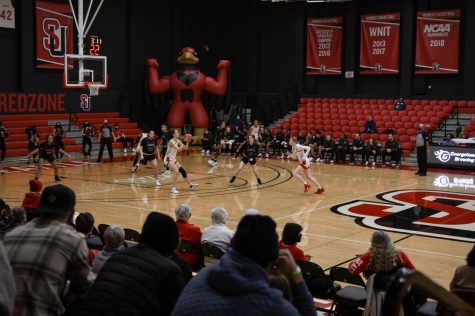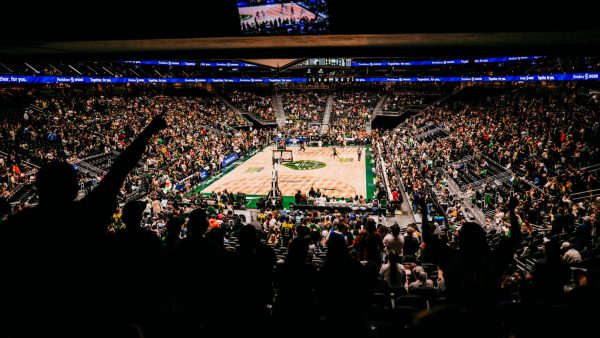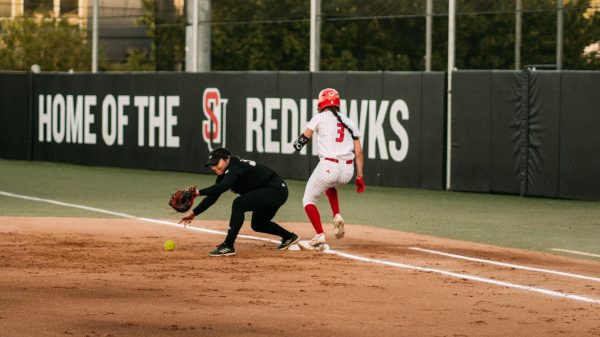Seattle U Student-Athles Involved in Alleged Racist and Sexist Harassment at NCAA Soccer Tournament
The group of Seattle U student-athletes who were accused of yelling sexist and racist comments at a female UW soccer player have come forward and apologized. | Photo courtesy of Brian Baird
A group of Seattle University student-athletes came forward and apologized to the Athletics Department for their behavior at the NCAA Women’s Soccer Tournament match between Seattle U and the University of Washington (UW). The group was accused of yelling sexist and racist jeers at a female UW soccer player on Nov. 16.
Seattle U learned of the harassment when Former U.S. Congressman Brian Baird, who attended the match with his wife, sent an email to officials at both universities which included photos of the student’s faces and audio recordings of their comments.
In an interview with The Spectator, Baird said he believed the students were members of a Seattle U Athletics team because of the style of branded jackets worn.
Upon investigations and inquiries, The Spectator has identified the jackets worn by several members in the photo as the Seattle U Men’s Swim team. Seattle U Director of Athletics Shaney Fink sent an email to all Seattle U student-athletes, coaches and athletics staff, stating that following the NCAA Women’s Soccer Tournament, a group of student-athletes requested to meet with her and apologize for their behavior.
“As a first step, prior to the independent conduct review process, they determined as a team that they would remove themselves from this past weekend’s competition,” Fink wrote in the letter.
The only Seattle U Athletics team that canceled a competition on the weekend referenced in her letter was the Seattle U Men’s Swim team.
“Instead of competing, they spent the time reflecting and writing. They identified the many people impacted by their behavior, including the competitors, the fans, the event management staff and the two university communities, and wrote letters of apology,” Fink continued.
In a separate statement to the Spectator, Fink wrote, “We are very concerned about the behavior that was described in the email and have referred the issue to be reviewed by the Dean of Students. We take these allegations very seriously.”
Despite repeated attempts for comment, Seattle U Men’s Swimming Head Coach Craig Nisgor and the Seattle U Athletics Department declined to comment further on the situation.
James Willette, associate vice president and Dean of Students, said he could not comment on this specific case because of privacy policies at Seattle U, but he elaborated on general practices within his office.
Although allegations are most often reported by Seattle U students, anyone can allege a violation of the code of conduct, and the university is ultimately responsible for defining
violations from any said party. After allegations have been made, the parties are notified and a hearing follows.
“Very severe or repeated violations of the code could result in suspension or dismissal. Our goal is to help students address and realign their behavior and grow from the mistakes they make while repairing harm when possible,” Willette said.
In his earlier interview with The Spectator, shortly after sending the letter to Seattle U officials, Baird said that he had reported this alleged harassment not to “ruin somebody’s life,” but instead to right the wrong that the student-athletes allegedly committed and to find justice for the harm done.
Furthermore, Baird hopes the incident serves as an opportunity to educate both the students directly involved and bystanders at the game. He emphasized, however, this does not make it worth it “in any way shape or form” and that a learning experience like this should never come at the expense of another person.
“Being a bystander does not make you an innocent bystander. There’s no innocence here,” he said. “What they did was wrong. It needed to be stopped.”
He pointed out that the alleged harassment was particularly egregious given that the goalie was in many ways “captive.”
“Other people interrupt her ability to do her job and try to turn her into a demeaned sexual object in the process,” Baird said. “And she doesn’t have a choice there. She’s kind of captive; she can’t just say, ‘I don’t have to put up with this. I’m walking away.’”
In all, Baird wants this conversation to expand beyond just the one incident at the soccer match—he hopes to disrupt the trend of letting men off the hook for their treatment of members of marginalized communities.
“Hopefully all of this attention will prevent anybody from just saying, ‘Oh boys will be boys.’”







![Josh Gibson Supplants Ty Cobb, Babe Ruth, as Baseball’s Best Hitter [OPINION]](https://seattlespectator.com/wp-content/uploads/2024/05/gettyimages-72075891-600x338.jpg)



